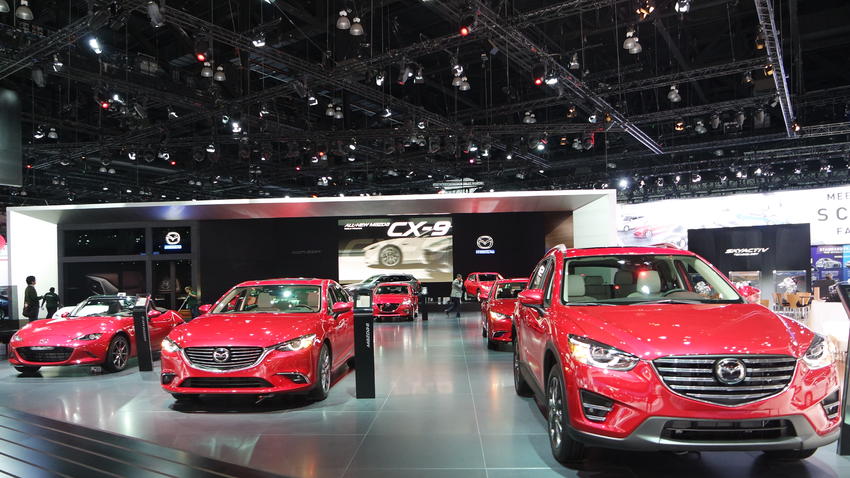MEXICO CITY (Expansion) – Despite the possible renegotiation of the North American Free Trade Agreement (NAFTA) conducted by President Donald Trump, the Japanese automotive company Mazda Motor Corp will keep the whole auto production at their Guanajuato’s plant, which is the only one in the American continent.
Miguel Barbeyto, Mazda Mexico CEO, explained that, “From Salamanca, Guanajuato, the Japanese firm supplies several markets worldwide, not only the United States. Therefore, even with a renegotiation of NAFTA, our complex will continue operating normally ”.
In 2016, 95% of Mazda’s production was exported abroad and the plant produced 180,000 units of its Mazda 2 and 3 models, as well as 50,000 units of the Toyota Yaris R (which is sold in the United States as “Scion iA”).
In that sense, “90% of the Mazda 2 production went to Europe, while the Mazda 3 production went to the United States, Canada, South America and Europe,” Barbeyto said.

Mazda started production at its plant in Salamanca, Guanajuato, in 2014 as a key export base (Image: Expansion)
Until 2010, the firm had assembled 70% of the vehicles in Japan, and this was not convenient, due to the high costs and long distribution times, which impacted the final product’s costs.
For that reason, in 2011 the firm announced the opening of other plants in emerging countries, such as México, China, Malaysia, Thailand and Russia, in order to supply its main consumer areas (United States, Europe and Japan).
The plant in Mexico started production in Salamanca, Guanajuato with 140,000 units a year , and by 2016, the number reached 230,000 units, employing at least 5,200 people.
Furthermore, Mazda seeks to maintain 3.4% of sales on the global market achieved in 2016, based on after-sales service, financing and brand positioning.
Regarding the Mexican market, it is ranked in seventh place, with 54,855 units sold, just below the United States, China, Japan, Australia, Canada and Germany.
The exchange rate is the main challenge, since the depreciation of the peso has made import models more expensive. Finally, the Mazda Mexico CEO estimated that, prices will increase around 1.8% in 2017.
Source: http://expansion.mx/
